Werner Herzog is a self-taught filmmaker with over 70 films to date. As a multi-award winner, he’s best known for Grizzly Man, Fitzcarraldo, and Nosferatu the Vampyre. François Trufault described him as “the most important film director alive.”
So this Werner Herzog MasterClass offers a unique opportunity to learn from one of the greatest filmmakers of our time.
If you’re here, you’re likely wondering what the class is like and whether the Werner Herzog MasterClass is worth it. So in this balanced Werner Herzog MasterClass review, I’ll weigh up the pros and cons to help you decide.
But before delving into the detail, here’s a summary of the key points:
.
Quick summary
Learn how to:
- Develop your skills in storytelling
- Create suspense and flow
- Introduce compelling characters and narratives
- Understand audience relation to film
Pros
- Learn from a respected filmmaker
- Good insight into the creative process
- Plenty of examples and suggested viewing
Cons
- Covers a niche style of filmmaking
- Less coverage of technicalities
- Lessons aren’t always clearly defined
Course length: 26 lessons, 5 hours, 57 minutes.
Best for: Those interested in self-teaching rather than film school. This course has a focus on documentary filmmaking.
Overall: A unique and engaging MasterClass that focuses on a filmmaker’s relationship with actors, sound, documentary-making, and career strategy. Above all, Werner gives insight into life as a filmmaker and how to learn the basics of film.
Now I’ll look further into what this MasterClass covers, what I enjoyed, and where it could be improved.
Here’s what I’ll explore:
- About Werner Herzog and MasterClass
- Inside Werner Herzog’s MasterClass
- What I liked and what could be improved
- Who the course is for, prices, and alternatives
- What others have said about the MasterClass
- Verdict – is Werner Herzog’s MasterClass worth it?
First, here are some basics.
About Werner Herzog
Werner Herzog is a German film director known for his obscure feature films and documentaries.
He won Best Director at the Cannes Film Festival with his 1982 film, Fitzcarraldo.
In 2006, he won the Directors Guild of America Award for Outstanding Directorial Achievement. This was for his documentary, Grizzly Man.
If you’re eager to learn how to get into filmmaking, this MasterClass is one to consider.
If you haven't seen the trailer for this MasterClass, I highly recommend you watch it:
About MasterClass
“Learn from the best.”
MasterClass is an online educational resource founded in 2015. Its unique selling point is its 190+ MasterClasses delivered by experts with celebrity status. With a range of topics to choose from, MasterClass has quickly risen to the top of online educational content. You can get more details of the MasterClass platform and how it works in our MasterClass review.
Among its teachers include Gordon Ramsay, Aaron Sorkin, and Margaret Atwood. This makes for an unrivalled viewing experience that MasterClass matches with outstanding production values.
Despite being a new company, MasterClass has altered the landscape of online learning.
But, that being said, MasterClass might not be for everyone. It’s worth considering the pros and cons before deciding whether MasterClass is for you.
Inside Werner Herzog’s MasterClass
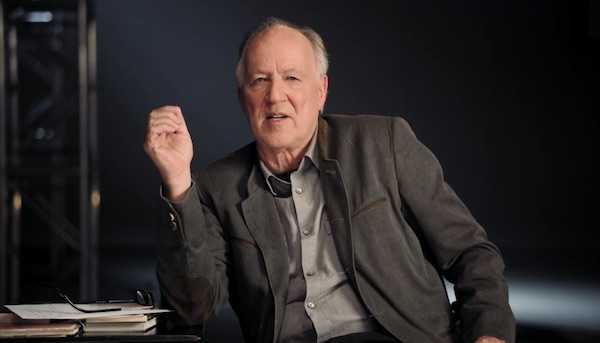
Werner Herzog’s MasterClass consists of 26 lessons spanning 6 hours in total. Each lesson has an average viewing time of 10 minutes.
MasterClass has some additional resources for this course. These include a Community Hub, 53-page Workbook, and Q&A document.
Here’s what to expect inside Werner Herzog’s MasterClass:
Lessons 1-3: Introduction & Teach Yourself Storytelling
“Ultimately, my goal is to be a good soldier of cinema.”
At the beginning of his MasterClass, Werner poses the question: “How do you survive in this industry?” For Werner, there are certain ways to become a good filmmaker and to learn the basics yourself.
He discusses his own experiences in first seeing, then analyzing movies from the perspective of how audiences watch them.
He teaches you how audiences come to form their own cinematic parallel to what they view on screen. Werner also devotes some time to how to best introduce a character. He gives an example of this from one of his favorite movies, Viva Zapata.
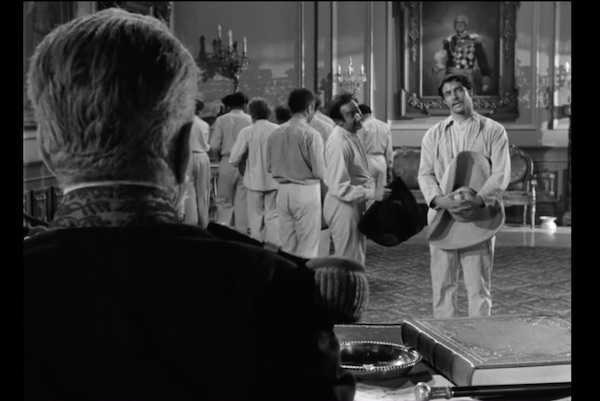
My key takeaway from this lesson was Werner’s emphasis on the universal rules of filmmaking. Like other MasterClasses I had seen, this one struck a clear balance between creativity and adhering to certain rules.
Lesson 4: Writing a Script
“I am somebody who never corrects a single word.”
In contrast to other filmmakers such as David Mamet, Werner dismisses the 3-act structure. For any fan of Werner’s movies, this is no surprise. His films take you to unexpected places and have a different pace to what you’d expect.
With this in mind, Werner teaches you how to do the following:
- Psych yourself up to write
- Take inspiration from poetry and music
- Find your own way to write
- Write with a sense of urgency
- Use the screenplay to set the tone for your film
Although this chapter delves into the niche ways in which Werner works, he also stresses the importance of finding your own way to write. He does this by dismantling commonly-held theories such as how long a work should be and when action should occur.
Interestingly, Werner also discusses the realities of the rewrites that occur on set. He teaches you how to prepare for that and to translate your work to a cinematographer.
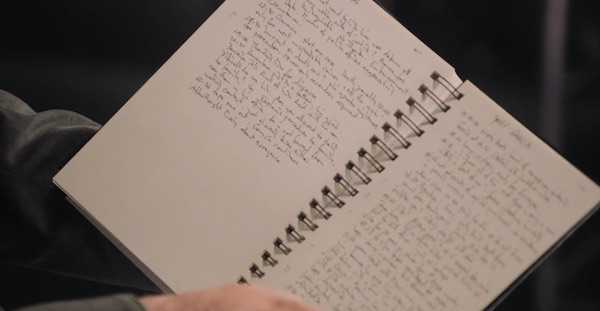
Lessons 5-6: Financing First Films & Negotiation Skills
“Ultimately, you have to become your own producer – your own financier.”
As someone who made their first movie aged 17, Werner is a prime candidate for discussing how to finance a film. He advises you to take on all aspects of the filmmaking process, including negotiating a crew, understanding costs, and raising your own money.
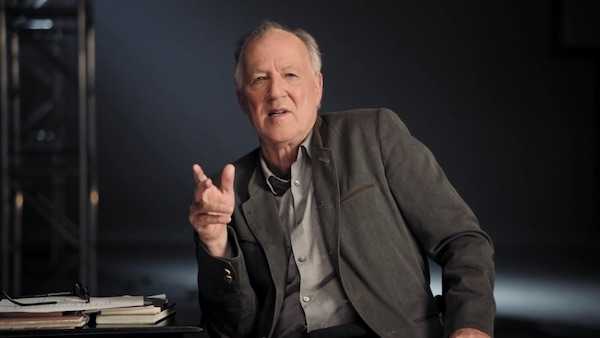
Werner explains how to:
- reduce costs when filming
- make a feature film
- understand basic legal concepts
- negotiate with conviction and deal with attorneys
Werner places a lot of emphasis on how to be your own boss and having a sense of urgency when negotiating. As he ends his chapter, “If you don’t have the deal within 2 days, you will not have it in 2 years either.”
Lessons 7-9: Locations, Leading the Platoon & Set Rules
“The quality of pre-production made the quality of what you see on screen.”
Using a scene from Aguire, the Wrath of God, Werner shows how quality scouting leads to quality footage. This clip shows a view below Machu Picchu, where the camera draws back to show the steepness of the mountain.
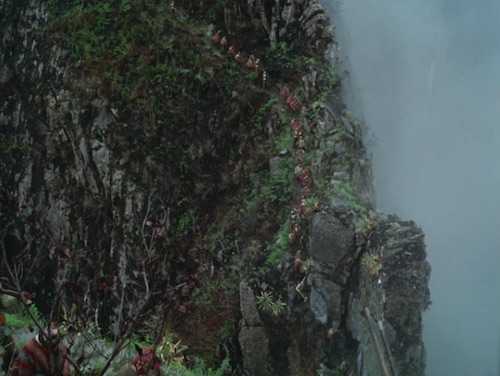
This scene was filmed only once. He achieved this by truly knowing his location, considering logistics and adapting to local difficulties. This, he says, is how to ensure quality footage.
As a further example he explains how he overcame the difficulties of shooting Fitzcarraldo in which a ship is pulled over a mountain.

For Werner, using digital effects for this scene would be no substitute for the real thing; he wanted to ensure that his viewers could trust what they were seeing.
The challenge of filming Fitzcarraldo was a nice segue into his ritual on overcoming doubt. As he puts it, doubts always come “on the very first hour of shooting” and there are methods you can use to settle this for both yourself and your crew.
My key takeaway from these lessons was Werner’s emphasis on fortifying yourself to deal with the unexpected. For example, he discusses the tantrums of his collaborator, Klaus Kinski, and how he defused the situation.
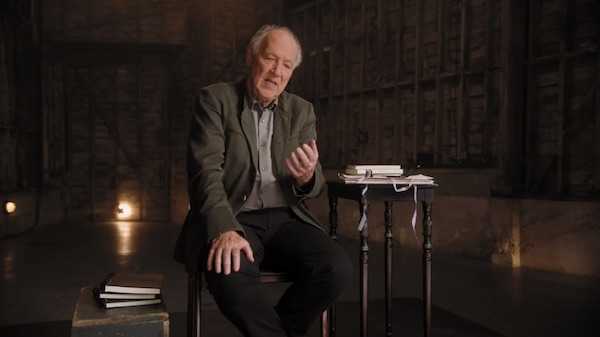
Werner teaches you the pros and cons of what can occur on set. He shows you how to manage these to foster the best working environment. As he puts it, you need to create “some sort of dynamic” to ensure a successful day of shooting.
Lessons 10-12: Camera: Shooting Strategy, Cinematography & Techniques
“I want the camera to be so curious that we physically move in.”
Like other filmmakers I had listened to, Werner has a clear opinion on what he does and doesn’t like. In particular, he rebukes storyboards as a basis for filming and dismisses the tendency to over-prepare.
You will learn how to do the following:
- Plan on-set (especially for continuity)
- Save time while shooting
- Operate the camera with your body
- Choose shots wisely to avoid post-production issues
- Create a visual mood through light
- Utilize Werner’s favorite techniques
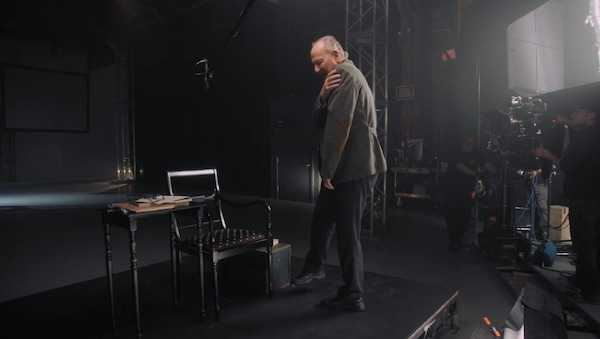
This section was compelling because of its physical demonstration. Along with clips from Werner’s films, he demonstrates how he operates a camera and created techniques such as “The Kinski Spiral.”
Werner reinforces the need to be frugal with coverage shots and teaches you how to save time and money by shooting quickly and strategically.
In conclusion, Werner minimizes where he can. As a result, limitations can help you to shoot practically and keep up the momentum. This is in contrast to a lot of stylistic filming that is common in other filmmakers’ works.
Lessons 13-14: Working with Actors: Creating the Character & On-Set
“The only thing that counts is what you see on the screen.”
In this chapter, Werner considers how to do the following:
- Cast the right actors and develop an eye for talent
- Use physicality, wardrobe, and props to create character
- Find the character’s voice
- Build a relationship with actors
- Keep actors motivated and energized
- Direct and control actors successfully
He uses Nicolas Cage in Bad Lieutenant as an example, and considers how you can create character through wardrobe and props. He shows you how he enhanced Nicolas’s character by directing physical quirks.
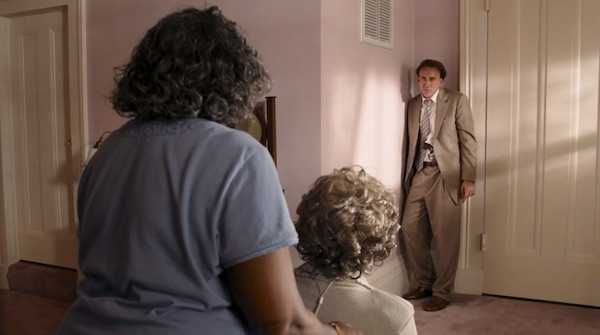
What I liked most about this section was Werner’s dismissal of star power. As he sees it, best-selling actors are nothing without chemistry. Because of this, everyone has an equal chance.
He also emphasizes the freshness that comes from actors delivering their lines while they’re new and how over rehearsing can drain rather than energize the actor.
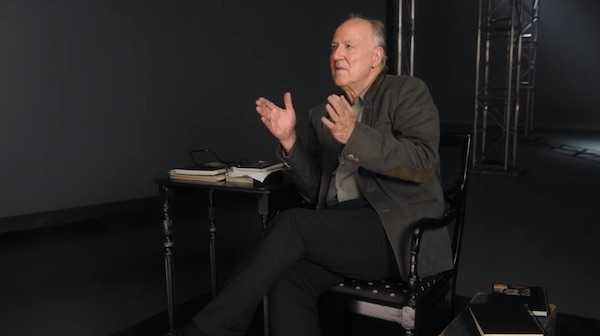
In this section, you will learn how to keep your actors on their marks, direct them effectively, and manage them to produce the best results.
Lessons 15-16: Sound & Music
“Sometimes I take more time in organizing sound than I take in organizing camera and light.”
For Werner, understanding sound is a key aspect of filmmaking: you need to know how to handle sound and understand its problems – only then can you produce the remarkable.

He gives an example of how he overcame issues with sound recording in Even Dwarfs Started Small.
Of all the sections, the one on sound was possibly the most vague. Werner spent a lot of time insisting that you learn the basics and train your ears to listen. However, there was less demonstration of how to do this than I would have hoped.
When it came to music, Werner shared ample material and advice. Like with sound, Werner notes that he often has music planned even before filming. This was the case, he says, with Bells from the Deep – a film about faith and superstition in Russia.
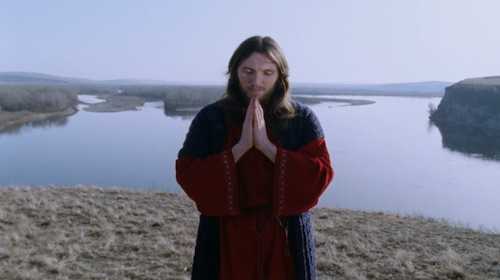
In this section, you will learn the importance of finding the mood for a film, and how to enhance this with music. Werner shares what he looks for when selecting a song and how to communicate this in the studio.
Lesson 17: Editing
“I do not start to edit until I have seen it all.”
Harking back to the beginning of his course, Werner reminds you to always put the audience at the forefront and to see the film from their perspective.
He advocates sensitizing your audience to what they are about to see and to be ruthless when cutting.
He also covers the following:
- Approaching editing as a collaborative venture
- Understanding the idiosyncrasies of audiences
- Getting the right feedback for your film
- Using the footage you can’t ignore in your final cut
Lessons 18-19: Invaded by Images
“Stories stumble into you all the time.”
Here, Werner shares some examples of how he stumbled upon images and put them into his movies regardless of narrative relevance. He examines how you can find ideas in unexpected ways and how you can decide which subjects to include.
Herzog provides interesting tips on staying open to discoveries as well as how to grab a story with a sense of urgency. He also emphasizes the need to combine ideas in unexpected ways. Werner concludes with an obscure scene from his film, Stroszek, which depicts a sequence of dancing animals.

However, I found this lesson very abstract. However, considering the niche nature of Werner’s films, this is hardly out of character.
Lessons 19-23: Documentary: Making Conversation, Eliciting Stories, Dealing with Human Beings & Truth in Non-Fiction
“Many of my documentaries, in fact, are feature films in disguise.”
Commercially, we know Werner best through his documentary films and MasterClass does dedicate 4 chapters to his most famed genre.
In these sections, Werner distinguishes between interviews and conversations. He teaches you how to make conversation with your subject and humanize them on screen.
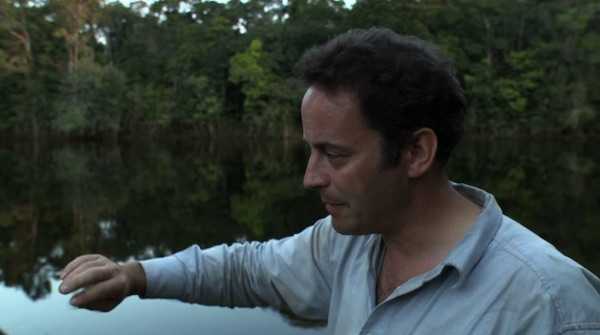
Using The White Diamond as an example, Werner shows you how his conversational strategies translate onto the screen and achieve naturalism.
This was an interesting way to see how Werner approached subjects for his movies. He gives great attention to respecting ethical boundaries and to creating scripted moments when it feels right.
Lessons 24-26: Career Strategy, Life as a Filmmaker & Postscript
“Be one of the ruthless ones who bursts onto the scene.”
At the end of his MasterClass, Werner advocates the need to teach yourself and to find your own platform. As he puts it, his world of filmmaking no longer exists. Moreover, you have to take initiative when it comes to making the most of what you have.
In conclusion, you will learn how to do the following:
- Prepare for rejection and work through it
- Use film festivals for exposure
- Find your own platform
- Create specific filmmaking goals
From these concluding chapters, I got the strong impression that Werner was sincere in his advice. He’s honest about the system he went through to get to where he is today and realistic about its downfalls.
All in all, I found these chapters inspiring and helpful. Werner does a good job at balancing the practical with the theoretical. He also shares the logical steps you can take to get ahead in the industry.
My Experience of Werner Herzog’s MasterClass
Overall, I found Werner Herzog’s MasterClass an interesting and unique look at filmmaking. It gave a lot of unconventional (but practical) advice that would be helpful for any aspiring filmmaker.
However, I don’t think this is a perfect course by any means. I plan to cover both the pros and cons to help you decide whether this MasterClass is right for you.
In other words, it’s worth bearing in mind all aspects of this course before choosing to commit to it.
What I Liked About Werner Herzog’s MasterClass
Learn from a Respected Filmmaker
As one of the recognized pioneers of “New German Cinema,” Werner is an important filmmaker who isn’t afraid to explore the unusual. Despite being self-taught, he has amassed great accolades as a director.
In this MasterClass, you learn from Werner’s unique perspective and gain insight into a more niche style of filmmaking. Personally, I liked that he strayed away from more Hollywood-centric filmmaking and gave us something refreshing to explore.
Good Insight into the Creative Process
One frequent criticism of MasterClass is that it’s difficult – if not impossible – to teach the creative process. That being said, I think such courses are valuable when it comes to sharing inspiration and helping viewers to better observe the world around them.
Werner does a great job of this and shares his personal inspiration and daily practices. In this MasterClass, you will learn how to use poetry and music to find ideas and how to discover new ways of looking at the world.
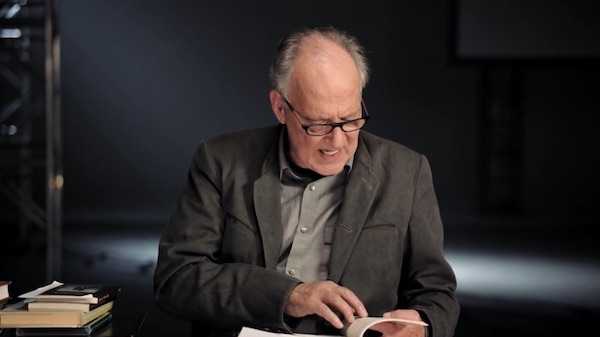
I also liked that all practical knowledge is supported by the need to find a spark. This is something that underpins Werner’s filmmaking and influences all aspects of production.
Strong Visual Examples and Suggested Viewing
Throughout the videos and the Workbook, Werner offers plenty of case studies to illustrate his teaching. This is helpful for visual learners who like to see lessons backed up with examples.
Across the course, you can easily expect 1-2 case studies in each chapter. I think MasterClass balances its case studies well and keeps the viewer interested throughout the viewing.
In addition, the Workbook is also worth mentioning here. MasterClass has an index of all films referenced in the course so viewers can explore them in their own time. It also includes Werner’s suggested reading, which he considers equally as important to watching films.
Helpful Workbook and Q&A Document
Beyond the index, MasterClass also loads the Workbook with extra content and assignments. These offer active learning opportunities because they encourage users to go out and film for themselves.
If you’re interested in printing a copy, or even returning to the PDF after the course, you will find chapter summaries, further viewing, and embedded links to take you beyond the course content.
After that, there is also a Q&A document. Here, Werner answers audience questions and elaborates on some of the points mentioned in the course. This is helpful to those with additional queries and is a nice way of reinforcing lessons.
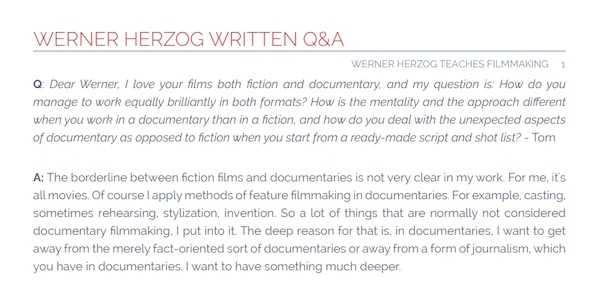
Great Balance of Theory and Practical
Unlike some other classes, which are either theory-based or practical, Werner strikes a good balance between the two. For me, this is a strong way of finding a medium between the abstract and the tactile.
Werner also discusses some abstract concepts such as creating suspense and involving the audience. However, these are always cemented with clear examples of how this translates on screen.
Accessibility
Werner Herzog’s MasterClass is currently in English with captions for the hard-of-hearing. While MasterClass has plans to expand its languages, it is worth noting that all subtitles are carefully created. They’re certainly a far-cry from auto-generated subtitles, which I thought was a huge bonus.
What Could Be Improved
Heavily Opinionated Point of View
To an extent, a personal bias in a MasterClass is unavoidable. However, it’s worth noting that Werner is very opinionated and blunt when it comes to expressing his views. For example, he describes storyboards as “brainless” and “for losers.”
Werner is unapologetic when it comes to criticizing the approaches he disagrees with. You should bear this in mind when approaching the MasterClass.
Later Chapters Are Documentary-Focused
Werner disagrees with the distinction between feature films and documentary films. That being said, about a quarter of the course is more specifically focused on documentary-making.
These chapters cover how to make conversation with subjects, tell difficult stories, and handle the problems of truth and fiction. Most of this advice is specific and less likely to translate into feature film-making.
If you’re not interested in documentary-making, I still wouldn’t say this course is a write-off. However, it might be more beneficial to consider an all-access pass, so you can delve into a range of topics and take away what is relevant for you.
Inconsistency in Some Lessons
While this course was engaging, a few lessons such as “Invaded by Images” and “Editing” fell a little short for me. They lacked a clear direction and didn’t fit into any one topic. Werner would sometimes toggle between discussing music to storytelling, and I wasn’t clear what the lesson objectives were ultimately supposed to be.
As a result, some of the case studies were quite random. For someone who hasn’t seen these films, they’re probably even more obscure. So, it’s worth noting that at times throughout the course, you might not come away with total clarity.
Films Aren’t Clearly Headed
This is a minor point, but considering the scope of case studies used, it would’ve been helpful to have some clearly-signed movie titles. And Werner sometimes begins discussing one movie, only for a clip to be shown of another.
In this MasterClass, the signposts aren’t entirely absent. For instance, The Wild Blue Yonder is clearly captioned on one of the clips, including the film’s release date. But, I think this course would have benefitted with some more consistency in this regard.
Less Suited to Film Students
While Werner’s lessons are in-depth and helpful to anyone looking to advance in their film career, there is a strong focus on self-teaching. Importantly, Werner criticizes the restrictiveness and expense of film schools. He claims anyone can learn the basics of film school in 1-2 weeks – without the hefty fees.
His lessons are heavily focused on how he taught himself filmmaking. Because of this emphasis, you might find yourself disappointed – especially if you’re keen to go on to film school.
Who Is This Course For?
On a scale of 1-10 (1 being a beginner and 10 being an expert) this course is geared towards those in the 1-6 range. It’s more suited to filmmakers who are starting out and Werner emphasizes your ability to start from little to no resources.
However, some of his advice is less relevant to advanced filmmakers, especially those with some released short films. Werner will teach you how to familiarize yourself with the legalities of filmmaking, understand financing, and getting your work exposed.
In this MasterClass, you can expect to learn how to:
- Teach yourself filmmaking through analysis
- Understand the relationship between film and audience
- Introduce and develop characters on screen
- Find your own voice as a filmmaker
- Communicate your vision to cinematographers
- Gain some foundational knowledge in film production
- Cast the right actors for your movie
- Edit and find valuable feedback for your film
- Begin and develop your career as a filmmaker
How Much Does the Course Cost?
At the time of writing MasterClass had three subscription offers. The cost of these (per month) is:
- Individual $10, 1 user
- Duo $15, 2 users
- Family $20, up to 6 users
All are billed annually, which at first glance may seem pricey.
However, you can considerably reduce your costs by joining with friends or family. And of course by taking as many courses as possible.
With nearly 200 courses on the platform you’re likely to find quite a few to interest you. Even if you buy an individual membership and find only 10% of the courses of interest this still works out to only $6 a course:
$120 (annual individual membership fee) / 20 courses = $6.
And if you join with friends or family then the cost of each course is drastically reduced. Check out our MasterClass review or MasterClass cost articles to see how.
Bearing in mind that these classes are taught by global leaders in their fields the value is unbeatable. You can pay over $100 for an online course taught by someone you’ve never even heard of, never mind an academy award winning filmmaker!
What’s more, MasterClass also offers a 30 day refund if you’re unhappy with your purchase.
You can also purchase MasterClass as a gift.
Alternatives to Werner Herzog’s MasterClass
Across MasterClass, there are other filmmaking classes available. They are:
- Jodie Foster Teaches Filmmaking
- David Lynch Teaches Creativity and Film
- Spike Lee Teaches Independent Filmmaking
- Martin Scorsese Teaches Filmmaking
- Mira Nair Teaches Independent Filmmaking
- Ken Burns Teaches Documentary Filmmaking
Outside of MasterClass, Udemy offers a number of classes including a documentary filmmaking course which spans 4.5 hours.
There are also specialist film making platforms with a range of courses suitable for all abilities. One of the best is MZed – read our MZed review to learn more.
With the exception of MZed, few platforms compare to the high production values and level of teaching we get from MasterClass.
Werner Herzog’s MasterClass: What Others Have Said
From what I saw online, it seemed a lot of viewers were already fans of Werner’s work. On MasterClass, YouTube, and Reddit, the course had a largely positive reception.
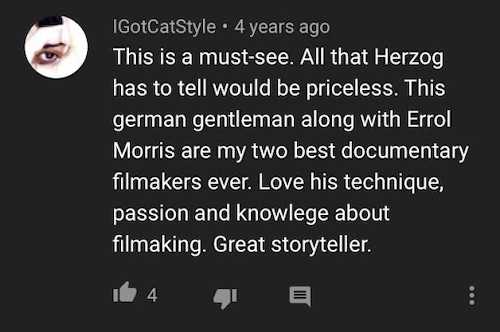
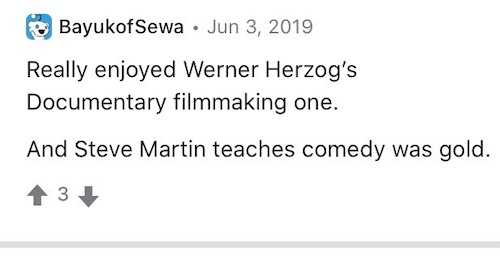
That being said, Werner’s course didn’t have totally positive feedback. In fact, one Reddit user noted that his methods are so unique that they barely translate for other filmmakers.
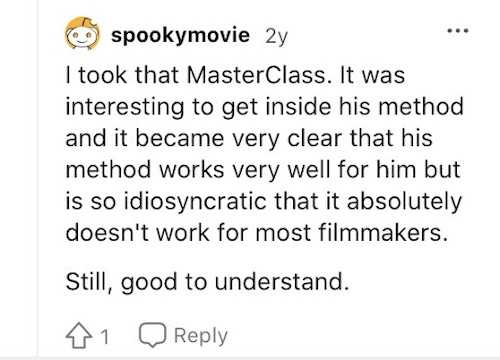
Others also questioned the course’s pricing, listing it as a main factor in deciding against it.
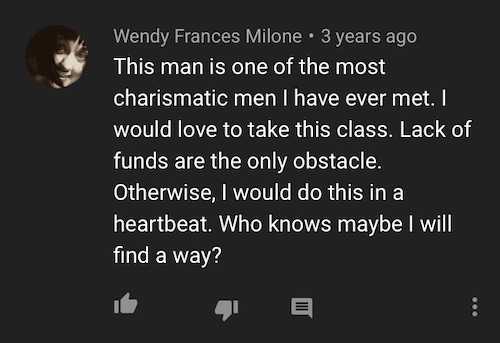
Lack of funds is also Werner’s point of critique against film school. In fact, MasterClass is easily cheaper than going to college. That being said, I think it’s important to consider what you want to get out of this course and to look into the alternatives.
Is the Course Content Unique?
While researching Werner’s other advice on filmmaking, I stumbled across a thread on Reddit where he answers questions from users.
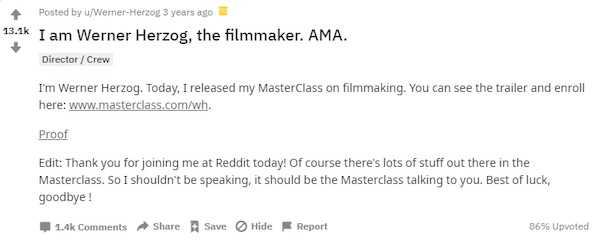
Interestingly, this was part of the promotion for his MasterClass. It met with plenty of positive feedback. Along with this, there are several interviews where he dismisses the ability of filmmaking to be taught, and where he frequently mocks film schools.
However, that being said, most commenters seemed to hold his MasterClass in great esteem. One user even referenced it as being the most inspirational of all of their teachings.
“His MasterClass is one of the greatest educations I have ever received.” - Comment from YouTube
What You Will Need
There isn’t an essential list of equipment for this course. In fact, Werner stresses the importance of using what you have rather than buying tools. That being said, the Workbook does recommend a recording device so you can complete some of the filming assignments.
Is It Worth It?
If you’re interested in documentary filmmaking, this course is worth watching. For instance, his lessons have a strong focus on working for yourself. As I have suggested, it’s less suited to those interested in film school.
You will learn how to:
- Gather and develop ideas to tell a story
- Approach feature- and documentary-filmmaking
- Become self-reliant and disciplined
- Launch your career on your own platform
- Gain insight into the theory and practice of being a director
It's worth baring in mind that a MasterClass subscription gives you access to all 190+ classes on the platform and there are ton in the media category so you will get good value if that is an area of interest for you.
In conclusion, Werner’s course covers a range of topics from a unique perspective and has a lot of useful information about breaking into film.
While it’s less suited to those interested in film school, I also think it’s a plausible alternative to those who are eager to explore other styles of filmmaking.
And since you can sample it for free and have a 30 day money back guarantee, you have nothing to lose by giving it a go.
Frequently Asked Questions
An individual subscription is $120. This gives you an all-access pass enabling you to take all 190+ MasterClasses.
The Werner Herzog MasterClass is 5 hours 57 minutes long.
No, this MasterClass isn’t available for free though you can sample it at no cost.
Yes, MasterClass offers refunds within 30 days.

Rebecca graduated from King's College university with a first class honours in English Language, followed by a Masters' Degree in Eighteenth Century Studies.
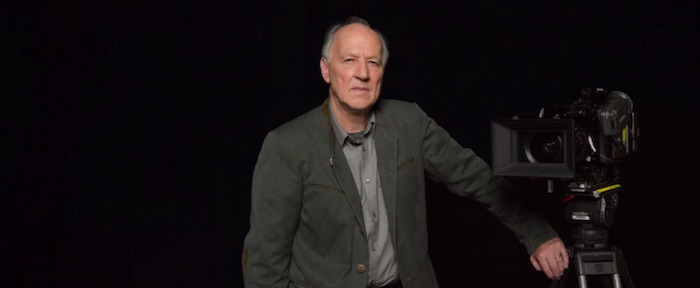
Nice read, I just passed this onto a friend who was doing some research on that. And he actually bought me lunch since I found it for him smile Therefore let me rephrase that: Thanks for lunch!
That’s awesome—sounds like you got a great deal! 😄 Glad the post was helpful, and I appreciate you sharing it. Enjoy your lunch! 🍽️😊